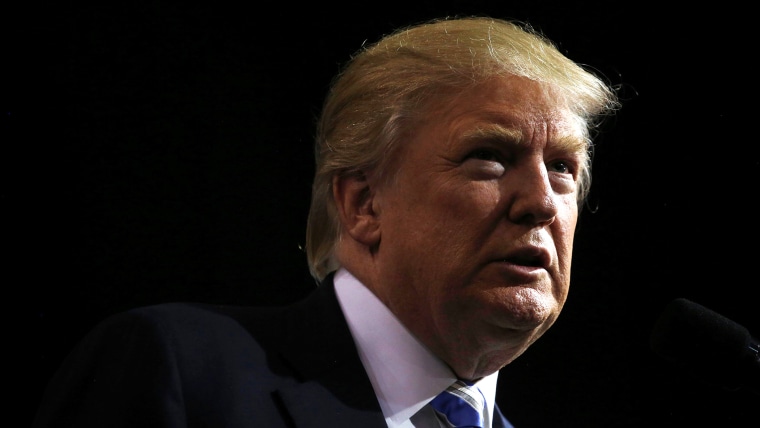As you've probably heard, there are progressive efforts underway to force recounts in Wisconsin, Michigan, and Pennsylvania -- three traditionally "blue" states where Donald Trump narrowly prevailed. Had these three states, where literally every independent poll showed Hillary Clinton ahead in the months leading up to Election Day, voted Democratic, Trump would've lost.But therein lies the problem for the president-elect's detractors: in order to make a difference in the election's outcome, these recounts would have to flip all three states, which is extraordinarily unlikely. If I were on Team Trump, I'd probably tell recount activists, "Go ahead and waste your money on this. Knock yourself out while we get ready for Inauguration Day."Oddly enough, however, Trump and his supporters are actually pushing back aggressively against the recounts, filing lawsuits and making every possible effort to derail the process.It's difficult to speculate about their motivation. Maybe Trump is feeling a little touchy about losing the popular vote by such a wide margin, and any attempt to further undermine the legitimacy of his looming presidency triggers fierce resistance.Whatever the cause for the pushback, the Washington Post read the court filings from Trump's attorneys and came across a fascinating tidbit.
In court filings submitted in an effort to block recount efforts by Green Party candidate Jill Stein in Michigan and Pennsylvania, attorneys for the president-elect stated unequivocally that there was, in fact, no evidence that any voter fraud had occurred.The most direct statement was made in the Trump campaign's filing in Michigan."On what basis does Stein seek to disenfranchise Michigan citizens? None really, save for speculation," it reads. "All available evidence suggests that the 2016 general election was not tainted by fraud or mistake."
Is that so. Perhaps now would be a good time to ask whether or not Donald Trump's lawyers have talked to Donald Trump.Because it was just last week when the president-elect raised questions about the validity of his own election, insisting via social media that he secretly won the popular vote he lost "if you deduct the millions of people who voted illegally."A wide variety of Republican officials, each of whom know Trump was lying, have defended the falsehood. Vice President-elect Mike Pence went so far as to say it's "refreshing" to hear Trump speak his mind, even when he's making demonstrably false claims.But now we have evidence that even the president-elect's lawyers have no use for their client's dishonesty. Trump may claim there were "millions" of fraudulent ballots cast, but Trump's legal filings say the exact opposite.Trump's attorneys went on to complain in its filing that Jill Stein "aims to sow doubts regarding the legitimacy of the presidential election." And that, evidently, is problematic -- because it's Donald Trump's job to sow doubts regarding the legitimacy of the presidential election.So what's it going to be Reince Priebus, Paul Ryan, Sean Spicer, Kris Kobach, and Mike Pence? Do you agree with Trump's tweets or Trump's legal filings? Remember, since they contradict one another, you can't endorse both.
